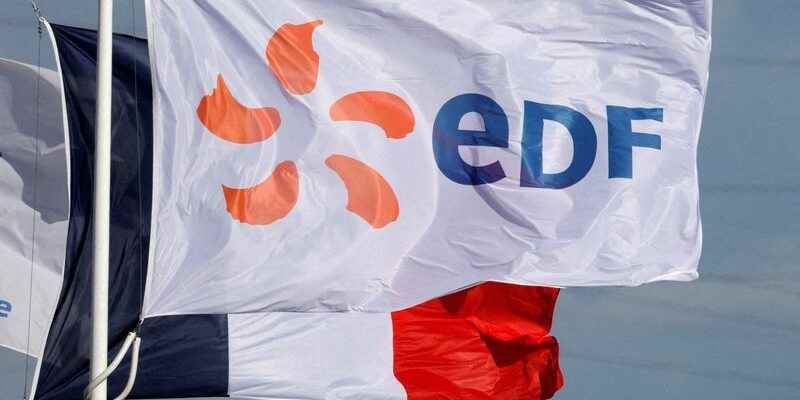PARIS (Reuters) – French President Emmanuel Macron is considering appointing Luc Rémont as CEO of EDF, the Elysee Palace announced on Thursday.
Head of international affairs at Schneider Electric, Luc Rémont was the big favorite to succeed Jean-Bernard Lévy, whose departure was announced this summer at the same time as the group’s renationalization project.
“The President of the Republic plans, on the proposal of the Prime Minister, to appoint Mr Luc Rémont as Chairman and CEO of Electricité de France”, said the Elysée in a press release.
The Elysée thus confirms that Emmanuel Macron has taken the decision to maintain a single governance for EDF, while the hypothesis of a split between the general management and the presidency had been mentioned with insistence in recent weeks.
Luc Rémont will be heard by the Economic Affairs Committees of the National Assembly and the Senate, where his appointment will have to be validated by a vote.
This will be done “in October”, a source at the Assembly’s Economic Affairs Committee told Reuters.
“It is important that EDF is stabilized quickly to tackle the fall and winter ahead,” she added.
The change at the head of EDF comes after the State announced in July its intention to launch a takeover bid at 12 euros per share on the approximately 16% of EDF’s capital that it does not yet hold.
The energy company has been confronted for several months with a historically low availability of its nuclear fleet, with around thirty of its 56 reactors shut down for maintenance operations or corrosion problems.
This situation, which in recent weeks has given rise to an indirect skirmish between Jean-Bernard Lévy and Emmanuel Macron, has helped to keep electricity prices at record levels as Europe seeks to do without electricity. Russian natural gas. It has made France, usually the largest exporter of electricity in the region, a net importer.
Some experts believe that forecasts for restarting EDF reactors by winter may prove to be too optimistic and that France could in such a case be forced to ration electricity to meet its own needs.
(Report Elizabeth Pineau, Tangi Salaün and Matthieu Protard, edited by Jean-Michel Bélot and Jean-Stéphane Brosse)
